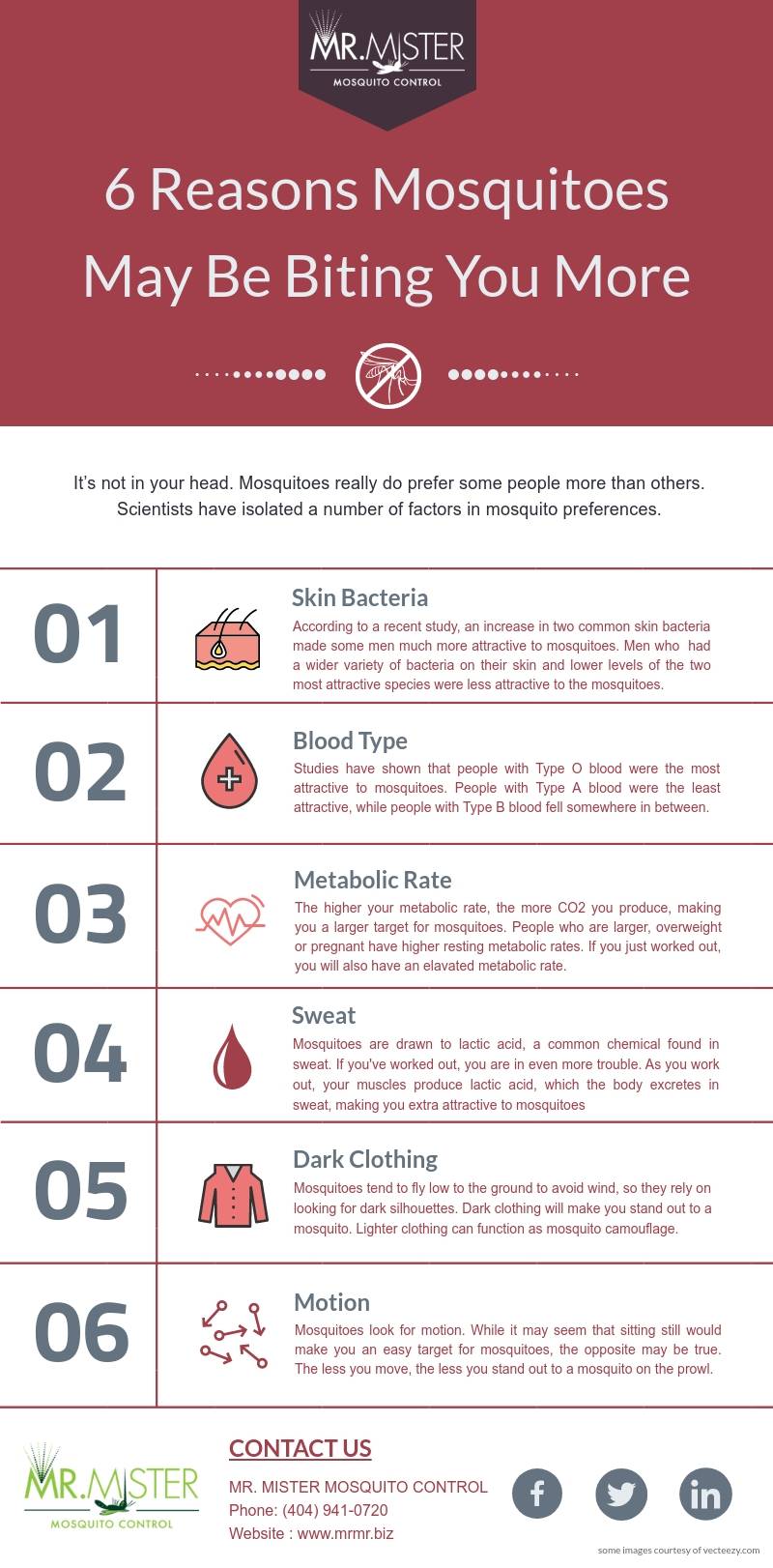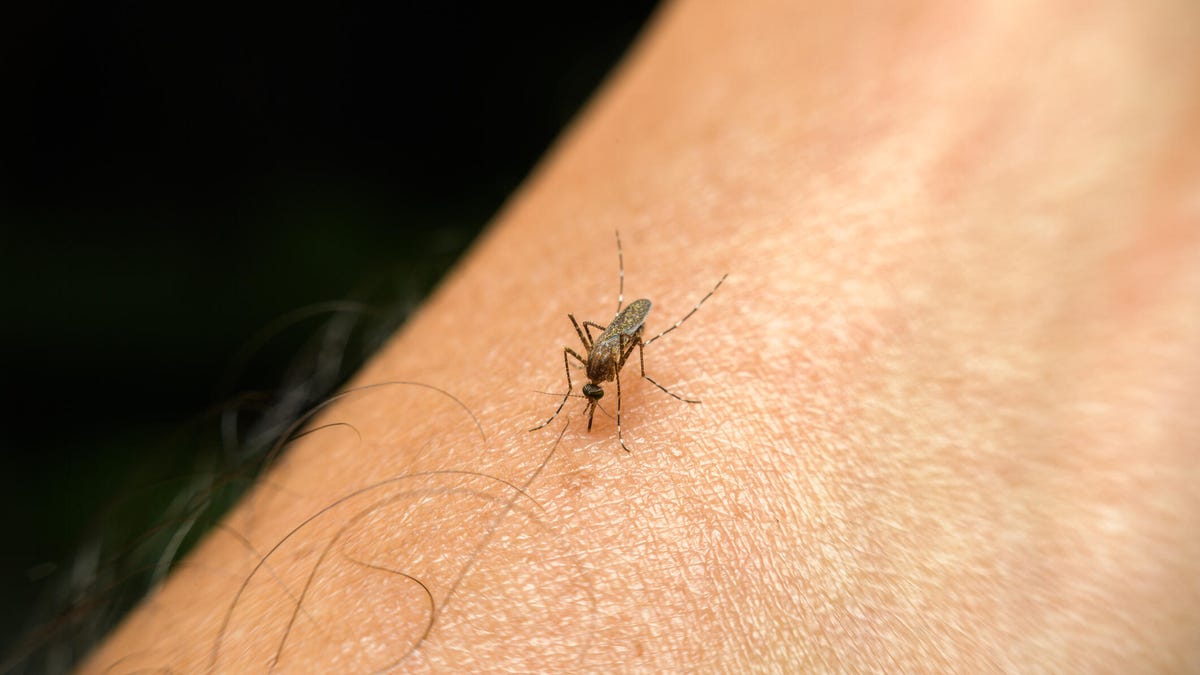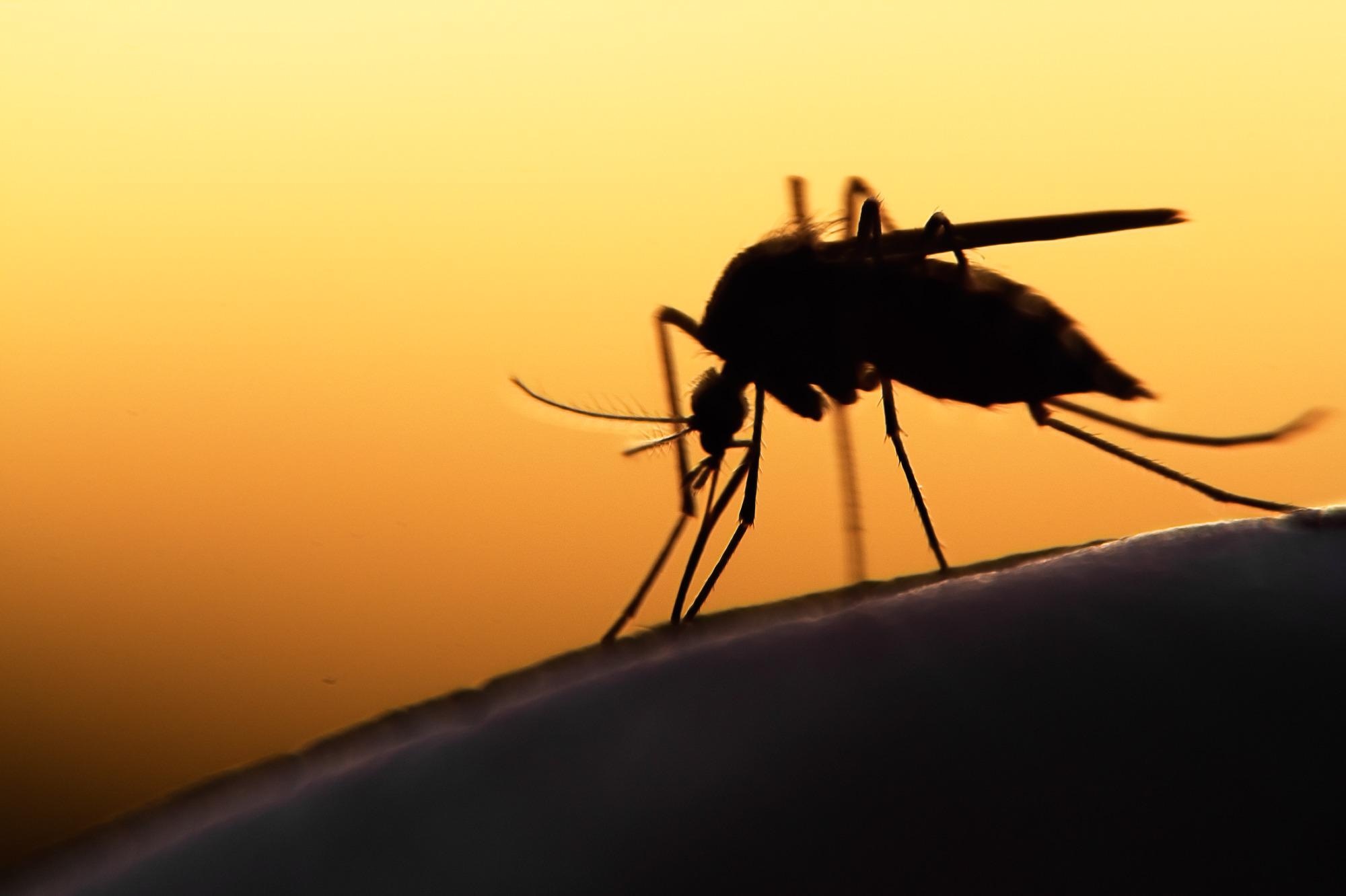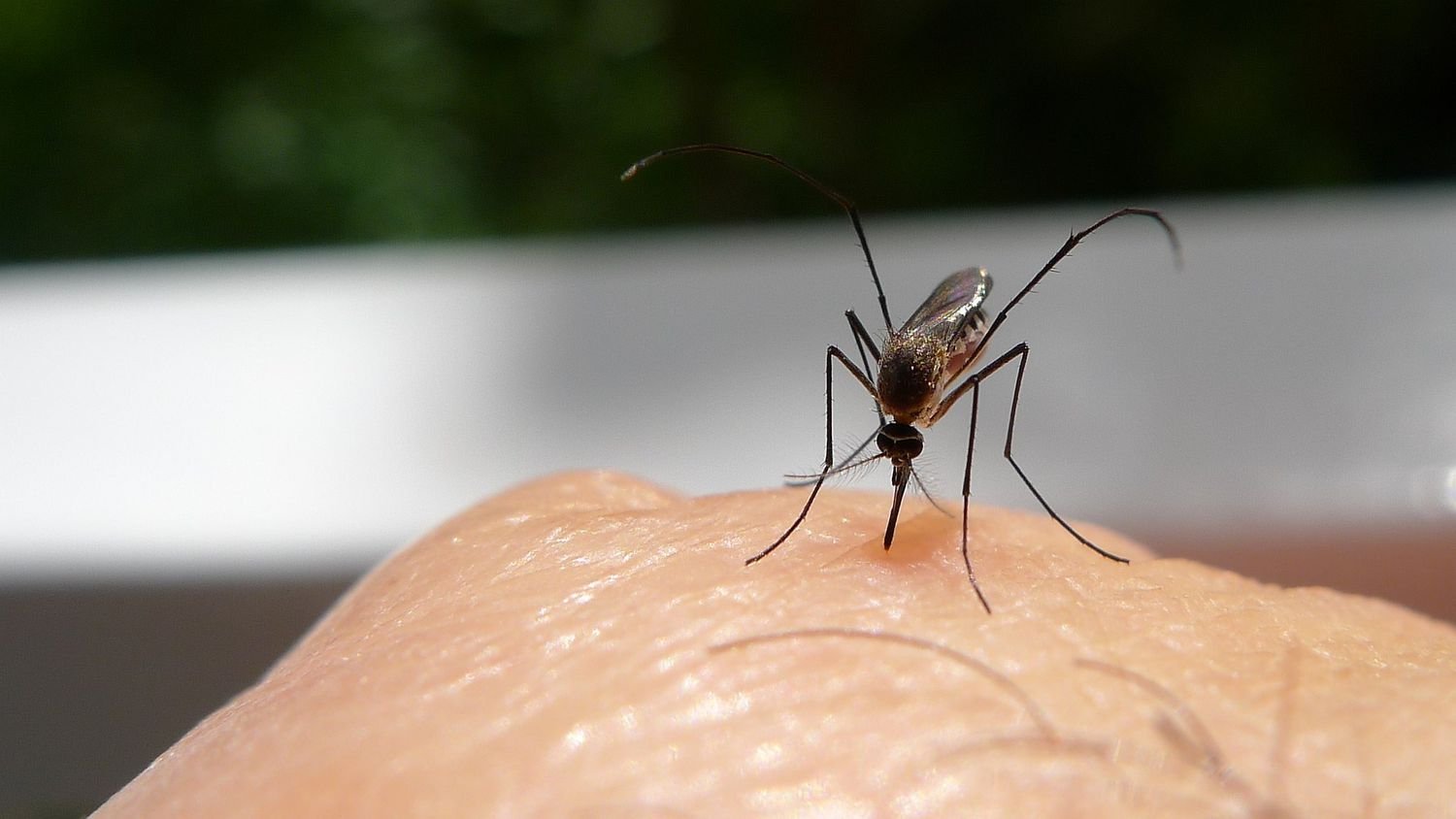Certain factors make you more prone to mosquito bites, including blood type, dark clothing, sweat, carbon dioxide, skin bacteria, pregnancy, and beer consumption. Mosquitoes are attracted to certain scents and compounds in the skin, and they thrive in warm and moist environments.
Additionally, genetics and body odor can also play a role in attracting mosquitoes. Factors such as blood type, body temperature, and ammonia levels can make some individuals more attractive to mosquitoes than others. Furthermore, consuming sweet, salty, spicy, or potassium-rich foods may also make you more appealing to mosquitoes.
It’s important to understand these factors in order to better protect yourself from mosquito bites.

Credit: www.mrmr.biz
The Mosquito Magnet Phenomenon
Have you ever been in a group of people and notice that you are the only one getting bitten by mosquitoes? This is known as the “mosquito magnet phenomenon.” Mosquitoes do, indeed, find some people more attractive than others, and there are several factors that make you more prone to mosquito bites.
Genetic Factors And Blood Type
Did you know that your genes can play a role in attracting mosquitoes? Some people produce more of certain chemicals in their skin that mosquitoes find irresistible. Additionally, research has shown that mosquitoes are more attracted to people with certain blood types, particularly type O. This is because people with type O blood tend to produce more of the chemicals that mosquitoes find attractive.
Chemical Signals From Skin
Mosquitoes are attracted to the chemicals produced by our skin, and certain compounds can make you more attractive to them. For example, people who produce more lactic acid, uric acid, and ammonia are more likely to be bitten by mosquitoes. Additionally, the bacteria on our skin can produce chemicals that attract mosquitoes.
It’s also been found that certain skin compounds, like cholesterol, can repel mosquitoes. So, if you have higher levels of these compounds, you may be less attractive to mosquitoes.
While there are several factors that make you more prone to mosquito bites, there are also steps you can take to protect yourself. Wearing light-colored clothing, using mosquito repellent, and avoiding peak mosquito hours (dusk and dawn) can all help reduce your risk of mosquito bites.
Carbon Dioxide: A Mosquito Beacon
Mosquitoes are drawn to the carbon dioxide we exhale, making it a key factor in attracting these pesky insects.
Breathing Patterns And Attraction
People with different breathing patterns may attract mosquitoes more.
Impact Of Physical Activity
Physical activity can increase carbon dioxide production, attracting more mosquitoes.
Body Temperature And Mosquito Appeal
Individuals with higher body temperatures are more prone to mosquito bites. Factors such as blood type, skin bacteria, and carbon dioxide emission also play a role in attracting mosquitoes. Additionally, wearing dark clothing and consuming beer can make a person more appealing to these pesky insects.
When it comes to mosquitoes, some people seem to be more prone to their bites than others. One factor that plays a role in attracting mosquitoes is body temperature. Let’s explore the relationship between body temperature and mosquito appeal.
Heat Signatures And Mosquito Targeting
Mosquitoes have the ability to detect heat signatures, making them more likely to target individuals with higher body temperatures. Mosquitoes are attracted to warmth, as it indicates the presence of blood vessels close to the surface of the skin. If you have a naturally higher body temperature, you may be more appealing to mosquitoes.
Influence Of Metabolism
Your metabolism also plays a role in determining your attractiveness to mosquitoes. Mosquitoes are drawn to individuals with higher metabolic rates, as they produce more carbon dioxide. When you have an elevated metabolic rate, you exhale more carbon dioxide, which acts as a mosquito attractant. This explains why individuals who are physically active or have a faster metabolism may be more prone to mosquito bites.

Credit: www.cnet.com
Dark Clothing As Mosquito Lure
Attractiveness to mosquitoes can be influenced by factors such as dark clothing, blood type, sweat, and skin bacteria. These elements have been identified as potential mosquito lures, making individuals more prone to mosquito bites.
Dark Clothing as Mosquito LureDid you know that the color of your clothing could be attracting mosquitoes to you? Mosquitoes are attracted to dark colors like black, navy, and red. This is because these colors absorb more heat and make you stand out in their environment. If you want to avoid mosquito bites, it’s best to wear light-colored clothing like white, beige, or light blue.Color preferences of mosquitoesMosquitoes are attracted to certain colors more than others. Dark colors like black, navy, and red are more attractive to mosquitoes because they absorb more heat and make you stand out in their environment. On the other hand, light colors like white, beige, or light blue are less attractive to mosquitoes. If you want to avoid mosquito bites, it’s best to wear light-colored clothing.Clothing choices to deter bitesIf you want to avoid mosquito bites, it’s important to choose your clothing wisely. In addition to wearing light-colored clothing, you should also wear loose-fitting clothes that cover as much of your skin as possible. This will make it harder for mosquitoes to bite you. You can also use insect repellent on your clothes to deter mosquitoes from landing on you.In conclusion, dark clothing can be a lure for mosquitoes. If you want to avoid mosquito bites, it’s best to wear light-colored, loose-fitting clothing that covers as much of your skin as possible. You can also use insect repellent on your clothes to deter mosquitoes from landing on you.Skin Microbiota: The Scent Of Attraction
When it comes to what makes you prone to mosquitoes, your skin microbiota plays a crucial role. Skin microbiota, the diverse community of bacteria living on your skin, emits scents that can attract mosquitoes.
Role Of Bacteria In Scent
Specific bacteria on your skin produce scents that mosquitoes find attractive. These scents can vary based on the types of bacteria present on your skin.
Personal Hygiene And Mosquito Bites
Your personal hygiene can influence the types of bacteria on your skin, which in turn affects your attractiveness to mosquitoes. Regular bathing and proper skin care can help reduce mosquito attraction.
Dietary Factors In Mosquito Attraction
Have you ever wondered why mosquitoes seem to be more attracted to some people than others? While factors like blood type and body odor play a role, the foods you consume can also influence your appeal to these pesky insects. Let’s explore the impact of dietary factors on mosquito attraction.
Effects Of Specific Nutrients
Research suggests that specific nutrients in your diet can affect your attractiveness to mosquitoes. Here are some dietary elements that may play a role:
- High potassium foods
- Foods rich in salt
- Sugary foods
- Spicy foods
Myths Versus Scientific Evidence
Contrary to popular belief, the connection between diet and mosquito attraction is often misunderstood. Let’s debunk some myths and explore the scientific evidence:
| Myth | Scientific Evidence |
|---|---|
| Eating garlic repels mosquitoes | No scientific evidence supports this claim. |
| Consuming bananas attracts mosquitoes | While some individuals report increased mosquito bites after eating bananas, scientific research on this claim is inconclusive. |
Lifestyle And Environmental Contributors
Mosquitoes are attracted to certain individuals based on lifestyle and environmental factors. Understanding these contributors can help you minimize your risk of mosquito bites.
Standing Water And Living Conditions
Standing water near your home, such as birdbaths or faulty gutters, can attract mosquitoes. Additionally, living in warm and moist environments increases your exposure to mosquitoes.
Alcohol Consumption And Mosquito Interest
Consuming alcohol can make you more appealing to mosquitoes due to the compounds excreted through your skin. Mosquitoes are drawn to the scent of alcohol on your breath and skin.
Mosquito Attraction Myths Debunked
Dark clothing, certain blood types, sweat, carbon dioxide, skin bacteria, and even beer consumption have been found to make individuals more attractive to mosquitoes. However, there are many mosquito attraction myths that have been debunked, so it’s important to separate fact from fiction when it comes to what makes you prone to mosquito bites.
Common Misconceptions
People think eating certain foods attracts mosquitoes more.
- Sweet, salty, spicy, or potassium-rich foods do not increase attraction.
- Dark clothing does not necessarily make you more appealing to mosquitoes.
Science-backed Prevention Tips
Scientifically proven methods to avoid mosquito bites:
- Wear light-colored clothing to reduce mosquito attraction.
- Use insect repellent containing DEET or picaridin.
- Eliminate standing water around your home to prevent mosquito breeding.

Credit: www.news-medical.net
Frequently Asked Questions
Why Am I So Prone To Mosquito Bites?
Certain factors make some people more prone to mosquito bites. These include wearing dark clothing, blood type (especially type O), sweat, carbon dioxide, pregnancy, skin bacteria, and beer consumption. Mosquitoes are attracted to these factors, which draw them to certain individuals.
What Blood Type Attracts Mosquitoes?
Mosquitoes are more attracted to Type O blood compared to A, B, and AB. Blood type is a significant factor in mosquito attraction.
What Body Odor Attracts Mosquitoes?
Mosquitoes are attracted to body odor that contains a blend of carboxylic acids, which are oily secretions that hydrate and protect our skin. Other factors that make someone more attractive to mosquitoes include dark clothing, blood type, sweat, carbon dioxide, pregnancy, skin bacteria, and beer consumption.
Mosquitoes are also drawn to areas that are warm and have plenty of moisture.
Conclusion
Several factors can make you more prone to mosquito bites, including blood type, body odor, skin compounds, and even the colors you wear. Understanding these factors can help you take preventive measures to reduce your attractiveness to mosquitoes and minimize the risk of bites.
By being aware of these factors, you can better protect yourself from itchy and annoying mosquito bites.
Related posts:

I’m MD Tanvir, and I bring years of expertise gained from working closely with pest control companies to the forefront. My journey in the industry has inspired me to launch Bug Battler, a platform aimed at equipping people with the know-how to combat pests autonomously. Through Bug Battler, I aim to empower individuals with practical insights to tackle pest infestations effectively.

